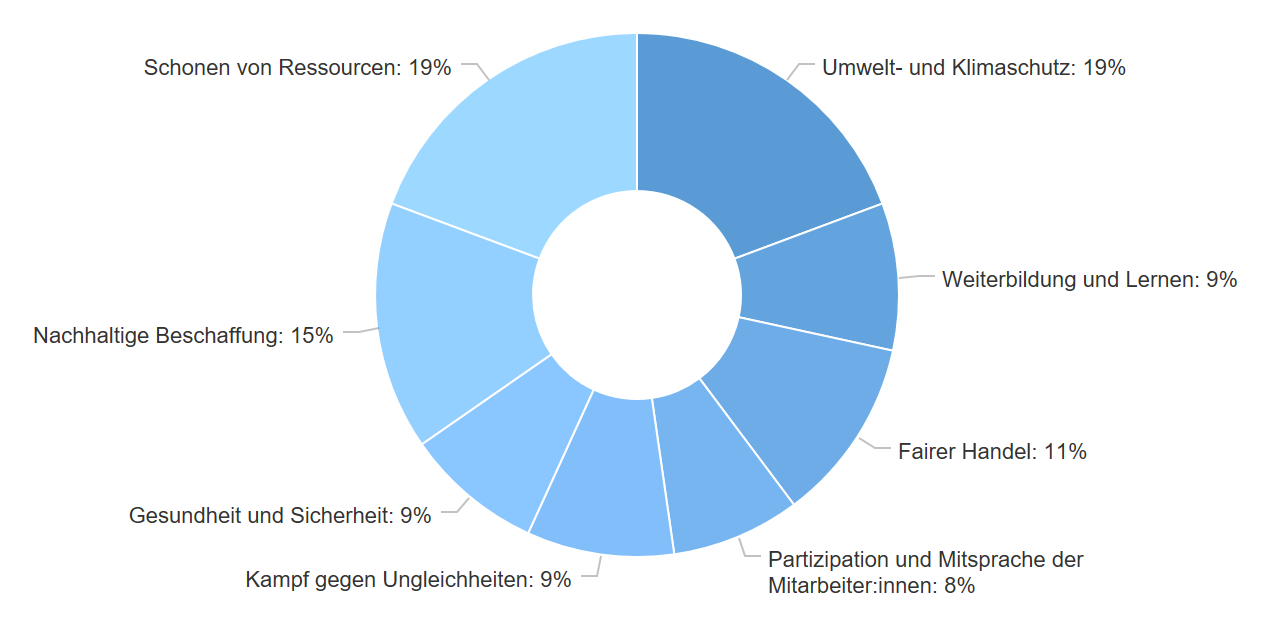In order to examine the current state of German medium-sized companies with regard to social sustainability, students at LMU Munich conducted a survey together with Breitenstein Consulting and the German Association for Small and Medium-sized Businesses (BVMW).
Social sustainability
Sustainability can be divided into three dimensions: ecology, social affairs and economics. While ecological sustainability has been embraced in most areas, social sustainability often plays a subordinate role. Social sustainability puts people and society at the center and includes development-promoting practices, employee participation and ecological responsibility. In the future, this area of sustainability is expected to play a particularly important role in terms of employer attractiveness, since aspects such as meaningfulness, participation, work-life balance, sustainability and social commitment are becoming increasingly important, especially for young people.
Results of the survey
A total of 30 managing directors of German medium-sized companies took part in the survey. It shows that sustainability is generally considered important, but that the area of ecology in particular is receiving a great deal of attention:

In terms of social sustainability, however, medium-sized companies are already on the right track: the majority pay close attention to regular employee appraisals, a healthy work-life balance, mental health and diversity. However, regular employee surveys, actively encouraging participation, learning and development opportunities for employees, a strong focus on shared responsibility with regard to ecological sustainability and developing a leadership and corporate mission statement are particularly important for ensuring potential for improvement.
Promoting social sustainability in companies
Based on the results of the survey, three crucial aspects of social sustainability in companies were identified:
- Participation: Employees are a company’s most important resource. Listen to their voices through regular surveys and informal feedback. Encourage your employees to get actively involved by creating an environment of trust and openness.
- Training and development: Companies that are fit for the future need a sustainable learning culture. Create a mindset of tolerance for mistakes and encourage unconventional ideas to drive innovation and creative thinking.
- Meaningfulness: What is the purpose of your company? And what values do you stand for? A corporate and leadership mission statement helps you and your employees answer these questions.





